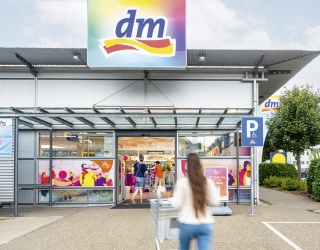
André Reif, born in 1978, founded MyMobai in 2008 together with his schoolmate André Richter. The company with locations in Leipzig and Dresden develops business models and applications for mobile devices. By now, MyMobai sees itself as the German market leader in Mobile Couponing. Richter says, his network currently has a range of 1.86 million users. MyMobai distributes discount coupons by Europcar, Hertz, O2, Subway and ImmobilienScout24 for instance. Mobile coupons are distributed based on the user’s location. Reif therefore also addresses small retailers or the hair salon at the corner.
How is the market for mobile coupons shaping up in Germany?
Basically, it is a growing market. Media-, advertising- and marketing agencies also interpret it that way. Surveys and studies support a high acceptance with mobile end-user devices – and this is also our impression. Even though mobile couponing is still not a direct competitor for conventional couponing, the market shares are increasing rapidly. This goes along with the generally increasing spread of modern smartphones – currently about every fourth mobile end-user device is a smartphone – and the ever increasing spread of M-Commerce offers.
Where does couponing in Germany rank compared for instance to the trailblazers in the USA?
Yes, the U.S. is already farther ahead. Aside from a larger spread of smartphones, this is mainly due to a higher acceptance of online services and a more carefree handling of personal data in general: Almost a third of adults with mobile phones in the USA are willing to share their phone number with a retailer to receive mobile coupons. For young adults between the ages of 18 and 34 it is actually every second person. In Germany people are much more sensitive with their own information. That’s why we offer a solution where the user doesn’t have to provide any personal information, not even a mail-address, which increases acceptance of course.
Why has Germany been dragging behind the USA for decades in terms of coupons?
In the U.S. couponing has been around since the end of the 19th century, the first provider was probably the one well-known soft drink manufacturer. Since that time, coupons have been a fixture in the US-American consumer reality – virtually every package has a coupon printed on it and at almost every purchase you receive a coupon section at the end of your receipt. Not since August 2001 with the abolition of the German law governing discounts from 1933 (“Rabattgesetz”), couponing has become possible in Germany. That’s why not for a long time yet does it have the same significance as in the USA. It still is not as strongly fixed in consumer perception. A multitude of legal regulations which restrict the range of coupon applications, for instance the German Act Against Unfair Competition (UWG), the German Act Against Restraints of Competition (GWB) and the German ban on discounts and rebates for newspapers, books and tobacco products are adding to this.
Will printed coupons in advertisements or sales flyers soon become obsolete?
Obviously nobody can determine an exact time frame for this, but the growth rates for smartphones and apps and the acceptance of location-based services by users speak for themselves. A survey on the acceptance of mobile couponing revealed that 68 percent are interested in location-based services. This is also due to the ever increasing intuitive user guidance. And to add to it, mobile couponing campaigns are significantly more cost-effective and more quickly implemented and provide higher redemption rates.
What benefits do mobile coupons provide compared to web coupons and printable coupons?
Mobile coupons are always at your fingertips, always current, don’t get tattered, don’t use up any space in your wallet, and since they are not individually distributed, but usually along with other coupons via an app, a large range of products are available at any time. The constant availability on-the-go makes it possible to also carry out spontaneous decisions, for instance booking a hotel, which provides the user with a high degree of freedom and independence. The truly original unique selling point of mobile applications – and this is also true for mobile couponing – are the location-based services. Based on the location, consumers are reached exactly where they are at that point in time and only those offers that are also accessible are being presented, which in turn makes impulse purchases possible. Other reasons for growth are advancements in scan technology for barcodes, like for instance the introduction of area-imaging scanners that can also read two-dimensional barcodes – which enables the direct digital entry at the store’s cash register and increases the convenience for the customer. Or the immense cost savings due to the digital coupon distribution.
How big is the willingness of mobile phone users to receive coupons? What kind of target group do you reach this way?
Nearly 70 percent of all consumers that own a cell phone are interested in mobile couponing. As a target group, primarily digital natives and young adults are the focus, and through the latter no doubt also multi-person households are being addressed because there is also a significantly larger interest in mobile couponing offers.
How does the process chain work in mobile couponing? Who takes over clearing between industry and retail?
The couponing provider is the central location. He delivers the backend through which the coupon campaigns are being applied and administrated. He takes care of the integration of coupons into many different distributive channels and brings cellular service providers together in one network. Currently for certain redemption types, clearing houses still need to take over the processing between manufacturer and retailer, since only they come with banking licenses. Starting April 30, 2011 however, the legal situation will change. Now other companies can also enter this market segment and via the BaFin (The German Federal Financial Supervisory Authority) apply for specially adapted licenses for E-commerce.
Who is presently particularly active in distributing mobile coupons?
Mobile coupons are interesting for nearly all industry sectors. According to a current survey, at the moment admittedly most coupons are distributed in food retailing and drugstores, this meaning industry sectors with quick turnaround products.
Which coupon types are especially sought after in mobile couponing?
The focus is on discount coupons with price reductions and bundle coupons, this being coupons with a free product or service give-away – according to the principle of ”buy one, get one free“. Dialog- and loyalty coupons can also be turned around very well. More of a fringe phenomenon are consulting vouchers, membership cards and sweepstakes. Functionally, they actually belong to other areas of mobile marketing. Yet in essence this is also conceivable. Sweepstakes for instance could be used to increase the attractiveness of discount coupons.
What perks do you have to offer and what response rate is possible with it?
In mobile couponing we calculate response- or redemption rates of 10 percent on average – compared to 0.5 percent in conventional couponing. Mind you: that’s an average of 10 percent. The rates are in part actually a lot higher. This is certainly also dependent on the kind of offer and the environment of the couponing campaign – a 50 percent discount for a purchase of a hundred Euros or more during the pre-Christmas season is almost off the charts, and for a discount value of 10 to 15 percent at least every fifth person would still feel enticed.
A cell phone location can be found and location-based coupons can be sent to it. Are coupons also beneficial for the pastry shop at the corner? What kinds of response rates are realistic for small retailers?
Generally, mobile coupons are suited for retail and food service. The size of the business plays no special role in this. What’s really relevant is first of all whether the coupon can be easily redeemed – and for this a checkout needs to have the appropriate technical options. And secondly it is relevant whether the corresponding target group of the customer is also reachable via mobile end-user devices. Modern bakeries or chain stores definitely belong to those for whom mobile couponing is a very attractive marketing tool.
What kinds of information about the person that redeems the coupon does a retailer get?
Retail does not get any personal data from us whatsoever – no cell phone number, no name, address or anything of that nature. At MyMobai the user or person who redeems the coupon also does not have to register when he/she downloads our app. The only thing we use for targeted marketing are profiles that anonymously display user behavior. Currently we are the only ones that can offer something like that.
How can retailers in the future directly address the coupon redeemer?
The retailer already does this now by using our hyper-location-based services. Through our patented anonymous tracking procedure we offer our customers the possibility of us filtering out specific target groups to once again address them very specifically with our coupons. The use of personal data for a direct approach without the prior consent of the consumer would be a breach of the UWG (German Act Against Unfair Competition). For direct marketing this is going to be a challenge – but it’s not for MyMobai.
At the EuroShop you were a sub-exhibitor of NCR. Why NCR and how is this partnership developing?
NCR is an internationally active, US-American company and the global market leader in financial self-service solutions and POS scanner systems. Especially the latest scanner technologies like area imager scanners make the use of mobile couponing applications on smartphones easier. An integration of mobile coupons directly into cash registers could likewise be very interesting in this case.We were very delighted to be able to present our solution in the NCR environment.
Were you pleased with the EuroShop?
Very much so actually. Visitor interest was enormous.Especially the subject of clearing was in the spotlight. The best feedback we got was for our implementation concepts for the complete integration of our mobile couponing solution into different POS systems.
What are your next steps going to be?
We adapt to the customers and the demands of the market and try to design it ourselves as well. To do this we certainly need a little more manpower. The next step on our agenda will therefore be a personnel and spatial expansion.
Interview by René Schellbach, iXtenso.com






